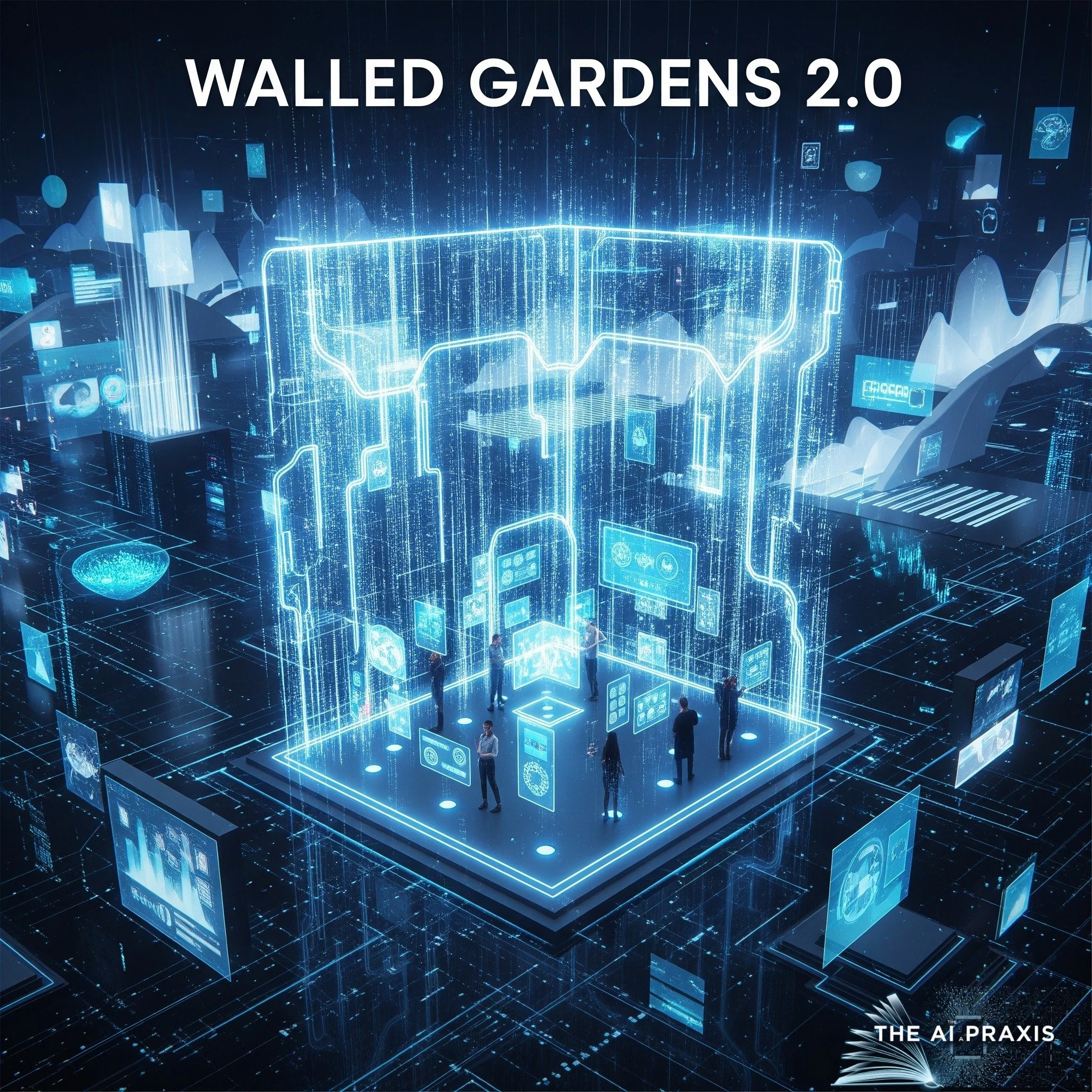Walled Garden 2.0
Definition
A Walled Garden 2.0 is a potential future state where a few hyperscale technology companies (e.g., Google, Amazon, Apple) act as powerful, algorithmic gatekeepers of commerce. In this scenario, brands risk being forced to pay significant "tolls" (e.g., high fees, mandatory data-sharing) for visibility and access within these closed ecosystems.
Executive Summary
Why it matters: The rise of these new digital gardens is not just a threat to marketing; it is a war for market access, driven by a race to control the AI agents that will shop on behalf of consumers.
The New Tolls: The tolls of this new era are more subtle than a simple fee. They include "Pay-to-Play Visibility" (bidding on a consumer's intent), "Data-as-a-Toll" (platforms demanding access to a brand's D2C data), and "Forced Preferential Pricing" (being algorithmically pressured to lower prices).
Origin: The "Walled Garden 2.0" is a direct continuation of the playbook first seen with the Apple App Store, but with infinitely higher stakes for the future of commerce.
Strategic Imperative: The primary defense against being relegated to a simple supplier in these new ecosystems is to build and fortify your own Direct-to-Consumer (D2C) channel as a "strategic fortress".
Example in Practice
The Epic Games v. Apple lawsuit is the definitive case study of Walled Garden 1.0, and the July 2025 Amazon-Google ad withdrawal is the first shot in the agentic turf war. Amazon's decision to sever its product data from Google's ecosystem is a clear act of Walled Garden construction, a strategic move to deny a key competitor the "data fuel" for its AI.
See also: AI Gatekeepers, The Shopper Schism
